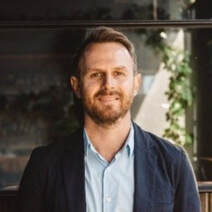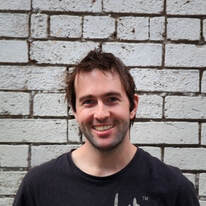|
Price is per person and inclusive of GST.
If you are unable to pay via card, or would prefer to pay via direct transfer or require an invoice to pay please fill out the request form below. An invoice will be sent to the nominated address within 24 hours. |
DetailsTime commitment: 12.5 hours over 5 modules
Dates:
Location: Online via Zoom Overview
Complex problems require considered interventions, and knowing where to start is the first of many challenges to overcome in addressing complexity. This requires a multi-faceted response to enable leaders and changemakers to strategically identify where to intervene, how, and what change might look like. This multi-session training brings together design, evaluation, and systems thinking to increase knowledge and skills in program design, evaluation, and the processes which we can use to understand the interconnectedness of complex systems. By the end of this series you will be equipped with means to map complex systems, establish co-design processes and implement monitoring and evaluation. This approach is perfectly suited to addressing complex and entrenched wicked problems, particularly through localised and place-based approaches. What will you learn? This training centres on the practical application of design, evaluation, and systems thinking approaches. Participants will learn how to understand and map a system, diagnose a specific area for intervention, generate and rapidly prototype different solutions, and develop associated processes for evaluation and impact monitoring. All three areas are woven together across the five modules. Click on the below module titles for more detail on each one. Participants will be provided with a copy of all of the resources from the five modules (including slides, templates, online resources and a digital workbook) to allow what is learnt and practised to be replicated back in the working environment. Module 1: Being Systems-Led - An Introduction to Systems Thinking
Wednesday 28 June 10:00 am - 12:30 pm, with an informal Q&A from 12:30-1:00 pm In Module 1, participants will learn the foundational principles of systems thinking and its importance in intervention design and evaluation. They will explore the role of program logics and theories of change for evaluation and co-design approaches. Module 2: Leverage Points and Planning for Intervention Design
Wednesday 5 July 10am - 12:30pm, with an informal Q&A from 12:30-1pm In Module 2, participants will learn how to identify patterns, relationships, and interconnections between different elements within a system to identify targeted areas for intervention. They will then use aspects of systems thinking to identify appropriate intervention points and the role of program logic for intervention design and evaluation. Module 3: Principles and Practices of Co-Design
Wednesday 12 July 10am - 12:30pm, with an informal Q&A from 12:30-1pm Module 3 provides a simplified and rapid co-design process using real-world examples. In small groups, participants will work to diagnose a specific problem and opportunity within a complex system, generate creative ideas, and test assumptions through rapid prototyping. Module 4: Evaluation Planning
Wednesday 19 July 10am - 12:30pm, with an informal Q&A from 12:30-1pm Module 4 expands on the of the co-design process from Module 3 through testing of the prototype intervention. Participants will revisit the program logic developed in Module 2 to identify key assumptions, develop key evaluation questions, identify indicators and means of collecting data, and resource the evaluation. Module 5: Pitching, Implementation and Storytelling
In Module 5, participants will learn about the importance of impact monitoring, including the use of different types of data, and how to use this data to make ongoing improvements to their interventions. Participants will learn foundational techniques for presenting the story of their intervention and its associated pitch. Participants can also participate in a Q&A following each session and can book in for a complimentary 1:1 30-minute consultation with either of the facilitators after the training to get specific advice on applying what’s learned to a specific program or project.
Is this for you? This training draws on White Light Education and First Person Consulting's extensive experience in co-design, evaluation and the application of systems thinking. Both organisations recognise and encourage the meaningful integration of these practices, but also the challenges for staff in organisations to do this. This training requires no pre-existing knowledge of these subjects, and is targeted at staff at all levels including changemakers, program managers, project officers, executives, and those in organisations involved in writing funding bids or grant applications. The training will also be useful for those responsible for implementing programs, and/or those who are required to establish and oversee evaluations. The knowledge and skills taught through this training are applicable across all content areas and sectors - our emphasis is on a meaningful and highly practical process that will leave participants equipped to undertake meaningful systems analysis, intervention co-design and evaluation. Past participants: "Would recommend this training to anyone involved in program and project design and delivery! The practical component allowed us to consolidate new skills and ask lots of questions in a supportive environment, ensuring that I wouldn't forget what I had just learned." Your facilitators: Christian Duell (White Light Education); Matt Healey (First Person Consulting)
Christian and Matt have developed this unique workshop offering drawing on their respective experience in program design and evaluation. Christian Duell is an award-winning educator, facilitator and social entrepreneur. He is the founder of White Light Education and a previous Manager of the Asia Pacific Design Library. With a background in architecture, Christian has over 15 years of design education and facilitation experience across a wide range of contexts. Since 2016 Christian has facilitated over 150 workshops and projects with over 3,000 people across Australia for organisations such as headspace, UNICEF, Red Cross Australia, Australian universities and state and local government.
Christian is passionate about empowering individuals and organisations, through the tools of creativity, to have greater freedom and quality of choice. He specialises in offering facilitation and training in the areas of design thinking, human-centred design and co-design, with a focus on tackling complex social challenges. Matt Healey is a social researcher and evaluation consultant with a reputation for unique and energetic workshops and activities. Over the last six years, he has led or significantly contributed to over 80 different projects.
These include evaluation of a range of environmental programs, including biodiversity, energy efficiency and climate change, evaluation of financial literacy programs, evaluation of a multi-country social innovator’s challenge for the Movember Foundation and development of an evaluation framework and plan for Victoria’s Sustainability Fund. Most recently Matt has been expanding his work into systems thinking and practice, seeking to incorporate these domains in evaluation and the design of programs to address complex problems. Matt is a regular contributor to the Australian Evaluation Society conference, delivering a range of papers and sessions on topics spanning learning from failure, the interface between co-design and evaluation and social network analysis. |
First Person Consulting is a Melbourne-based consulting firm specialising in research, evaluation, design and applied systems thinking in the environmental, health and social justice sectors.
Contact us to see how we can help!
Contact us to see how we can help!
Follow us:




